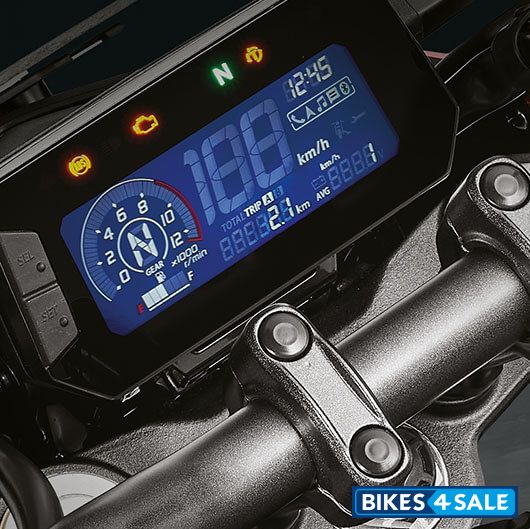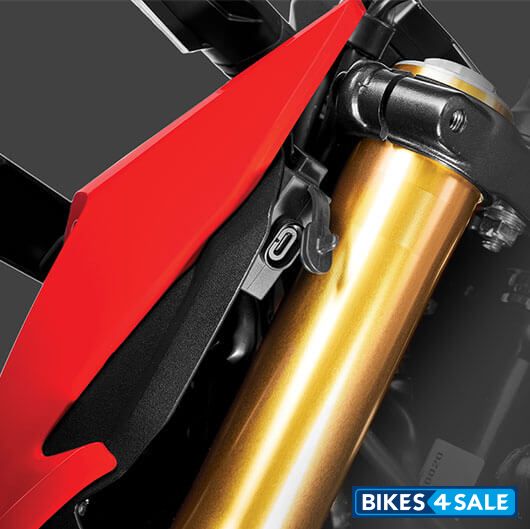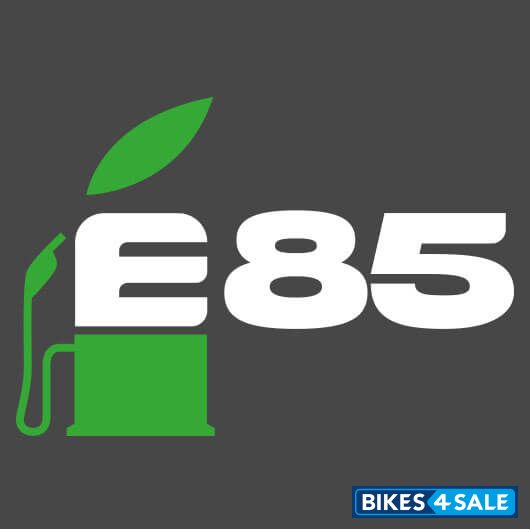Bikes4Sale Price Guide : Used Bike Valuation Tool
Know the market value of your used bike
KMs Run
| Selected Bikes |  Honda CB300F Flex-Fuel
Brand: Model: |
 TVS Apache RTR 300 FX
Brand: Model: |
Brand: Model: |
Brand: Model: |
| Fuel | Petrol | Petrol | ||
| Engine Displacement | 293.52 cc | 300.00 cc | ||
| Engine | 4 stroke, SI, Oil cooled Engine | 4 stroke, Liquid cooled, Single cylinder, SOHC | ||
| Engine Starting | Self start | Electric | ||
| Clutch | Multiplate wet clutch | Multiple disc in oil bath with hydraulic Control | ||
| Fuel System | PGM-FI | Electronic Fuel Injection | ||
| Cooling System | -- | Liquid Cooled Engine | ||
| Maximum Power | 24 Ps @ 7500rpm | -- | ||
| Maximum Torque | 25.9 Nm @ 5500 rpm | -- | ||
| Transmission | 6 Speed Transmission | 6 speed | ||
| Gear Shift Pattern | -- | 1-N-2-3-4-5-6 | ||
| Battery | 12 V, 5.0 Ah | -- | ||
| Display | Digital Display | -- | ||
| Frame | Diamond Type | Perimetral | ||
| Headlamp | LED | -- | ||
| Taillamp | LED | -- |
| Front | 110/70R-17M/C 54H | 90/90 x 21 | ||
| Rear | 150/60R-17M/C 66H | 110/90 x 19 |
| Front | 276mm Disc | Brembo Front disc 270 mm with hydraulic Control | ||
| Rear | 220mm Disc | Brembo Rear disc 220 mm with hydraulic Control | ||
| ABS | Dual Channel ABS | -- |
| Front | Telescopic (USD) | WP Monoshox with adjustable compression and rebound damping, | ||
| Rear | Monoshock | Monoshock Hydraulic Damped with Nitrogen Gas assist |
| Colors | Matte Axis Grey Metallic Sports Red |
-- |
| Length | 2084 mm | -- | ||
| Width | 765 mm | -- | ||
| Height | 1075 mm | -- | ||
| Weight | -- | 102 kg | ||
| Kerb Weight | 153 | -- | ||
| Seat Height | 789 | -- | ||
| Wheelbase | 1390 mm | 1480 mm | ||
| Ground Clearance | 177 mm | -- | ||
| Fuel Tank Capacity | 14.1 litres | 8 litres |
| About | The Honda CB300F Flex-Fuel offers a 293.52 cc engine delivering 24 Ps at 7500 rpm and 25.9 Nm t Read More | The TVS Apache RTR 300 FX comes with its powerful 300cc engine, this bike delivers an impressiv Read More | ||
| Features | - Honda Selectable Torque Control(HSTC) - Honda Smartphone Voice Control System (HSVCS) - USB-C Phone Charger  Honda Smartphone Voice  USB-C Phone Charger  |
Develops 160 bhp per litre. Flat torque curve through-out the Engine Revs Liquid Cooled Engine ensures optimum Engine temperature in all conditions Disc Brakes with Hydraulic control ensures very quick braking at High speeds Hydraulic control of Clutch - Progressive and positive Engagement and Disengagement of Clutch, ensuring smooth power delivery Forks - Outer tube machined from Aircraft Grade Aluminium for Light weight and Performance Rear Monoshocks - Hydraulic Damped with Nitrogen Gas assist – Gives 300 mm Rear wheel travel. Swing arm made of cast Aluminium to reduce weight. Aluminium Wheel Rims for Light weight and high response |
| Pros | -- | - Impressive power output - Smooth and responsive hydraulic controls - Lightweight and durable design - Comfortable ride with high-end suspension system - Fuel-efficient thanks to electronic fuel injection |
||
| Cons | -- | - 8-litre fuel tank may require frequent refuelling on long rides |
Get the best price for your old bike. Sell your bike at the Largest Used Bike Market.
